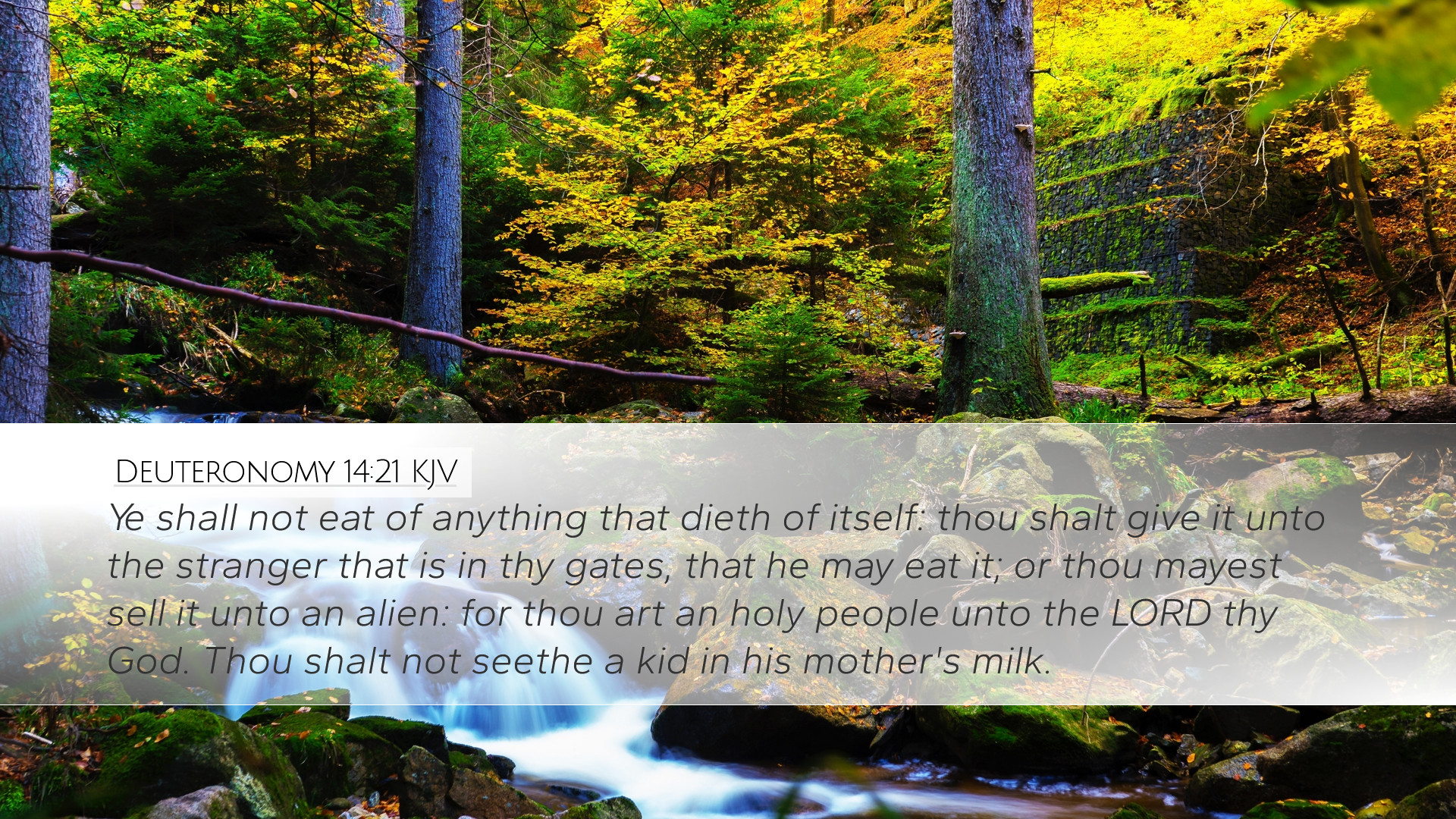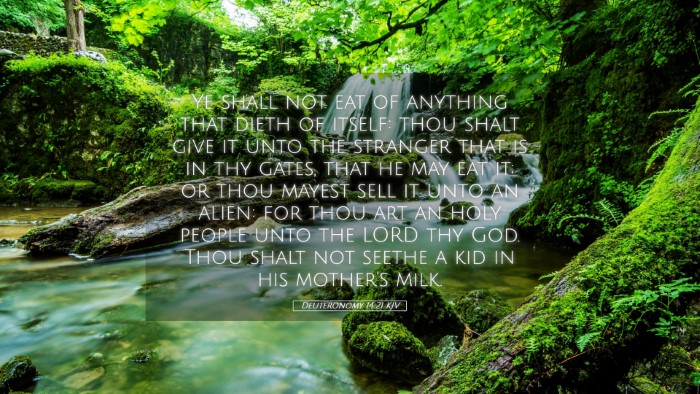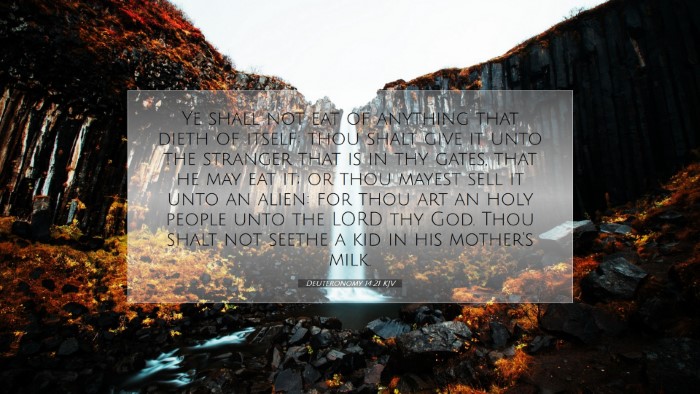Commentary on Deuteronomy 14:21
Verse: "You shall not eat anything that has died naturally. You may give it to the sojourner who is within your towns, that he may eat it, or you may sell it to a foreigner; for you are a people holy to the LORD your God. You shall not boil a young goat in its mother’s milk."
Introduction
This verse is part of the dietary laws given to the Israelites in the book of Deuteronomy. It emphasizes not only physical purity and health but also deeper spiritual and ethical implications concerning God’s holy people. It is crucial for understanding the broader themes of holiness and community in the life of Israel.
Contextual Background
The context of this command is found within a larger framework of laws delineated for the children of Israel. These laws are intended to set Israel apart from surrounding nations. In ancient Israel, dietary customs were prominent markers of identity and spirituality.
Insights from Public Domain Commentaries
Matthew Henry
Matthew Henry highlights that the prohibition against eating carcasses of animals that died naturally not only indicates a concern for health but also represents a moral and ceremonial law.
Key Points by Henry:
- This law emphasizes the sanctity of life and the proper treatment of God's creation.
- It reflects a divine order where what comes from God is treated with respect.
- Henry notes the implication that the Israelites serve a God who desires their purity, both outwardly and inwardly.
Albert Barnes
Barnes elaborates on the distinction between the dietary laws for Israel and those of pagan nations. He draws attention to the unique identity of Israelite society as called out by God.
Key Points by Barnes:
- Barnes asserts that these commands serve to shape the morality of the community, reinforcing the notion that diet is directly linked to holiness.
- He points out that while the Israelites were prohibited from consuming certain foods, they were allowed to share with foreigners, demonstrating an element of hospitality.
- He connects the concept of kosher laws with the idea of being a witness to the nations.
Adam Clarke
Adam Clarke provides an in-depth exploration of the cultural implications of the verse. He comments on the rationale behind dietary laws and their relevance to the covenant relationship with God.
Key Points by Clarke:
- Clarke notes that the phrase "you shall not eat anything that has died naturally" serves to promote a standard of cleanliness among the people.
- He emphasizes the idea that God's people must not only follow the laws but understand their purpose, which is to foster a community reflective of God's character.
- Clarke mentions that the prohibition against boiling a young goat in its mother's milk may carry deeper symbolic meanings related to compassion and respect for family.
Theological Implications
This verse lays a foundation for understanding God’s requirements for holiness. The dogma of avoiding the consumption of certain animals has profound implications in the realm of ritual purity and corporate identity.
Consider the following theological themes:
- Holiness: The call to be holy as God is holy (1 Peter 1:16) is echoed in these dietary laws.
- Community: The sharing of the meat with non-Israelites emphasizes inclusivity and the responsibility to care for others.
- Ethics: The laws indicate that a lifestyle consistent with belief must also reflect moral considerations.
Practical Applications
For contemporary readers, particularly pastors and scholars, there are practical lessons to be drawn from Deuteronomy 14:21. The call to be a distinct people may resonate in modern contexts of ethical living and community engagement.
- Consider what it means to maintain standards of holiness in personal and church life today.
- Reflection on dietary practices can open dialogues around cultural identity and community responsibility.
- These commands also invite believers to think about the ethical treatment of animals and the creation mandate.
Conclusion
In summary, Deuteronomy 14:21 is a vital scripture that calls forth a holistic consideration of diet, ethics, community, and holiness. Commentaries from Matthew Henry, Albert Barnes, and Adam Clarke provide rich insights that encourage believers to reflect deeply upon these divine instructions. By honoring the underlying principles of purity and compassion, the present-day Church can continue to uphold the holiness of God while being a light to the world.


